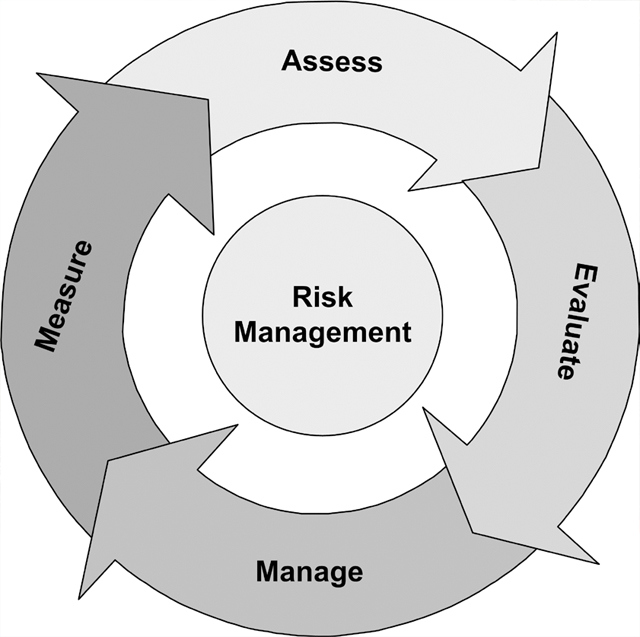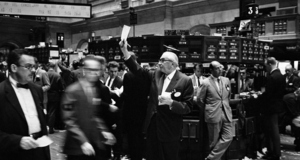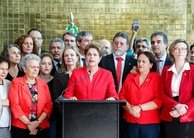From Cornell International Affairs Review VOL. 3 NO. 1A World of Financial Models: The French Touch in Deregulation, 1980-2009A Distinct French Outcome: Elite Culture and Universal BanksThe French model remains distinct. It kept a robust regulatory system, with regulatory agencies that had a tâtillon approach to controlling the market operations of financial institutions. The regulatory agencies did not become captured by the markets, as they did in other countries. French banks did not engage in as much risk-taking as their Anglo-Saxon counterpart. Although France has evolved towards a market-based financial system, its approach to regulation was not identical to the neo-liberal approach that dominated other financial centers subject to similar external pressures, in particular London and New York. Given the global pressures from technological and financial innovations, given the regional political pressures that accompanied and reinforced convergence, why is the French outcome distinct? This puzzle can be explained by the specific culture shared by the cohesive French elite. It has strong ties with the state and some sense of the general interest, or at least of the interest of the state, which they equate with the general interest. The organization of the French elite constrained the market pressures and led to this distinct outcome. The specific institutional setup of the main actors on the financial markets, the French universal banks, also played a role in constraining the external pressures. The universal banks produced a specific culture of risk-taking, and its business model, based on long term relationships with its clients, did not require as much deregulation. These factors shaped the way these external pressures impacted the French model. The convergence towards one global model of finance is not the necessary outcome of these external pressures.11 A Cohesive French Elite and Its Approach to the State and RegulationThe distinct French outcome is the product of the relations between the elite and the state.12 The elite are cohesive and go back and forth between civil service, politics, finance, regulation and the industry. They are socialized by similar educations and career paths. This produced a distinct world view which constrained the external deregulatory pressures. French elite culture and cohesiveness is an important factor to explain why France has a distinct regulatory model. “Deregulation does not mean no rules, just different rules,” as Schmidt (2002, 20) reminds us. And the characteristics of these different rules are partly determined by features of the nation, such as the organization of the elite. The cultural setting of France shapes the elite, which are predisposed to leave power in the hands of the state and to give it a strong role in the regulation of finance. This produces a suspicion towards the ideas according to which markets can self regulate and banks will control their risks. The fact that the leaders of the banks, of the state, and of the regulators all went to the same schools and were socialized in a world view that emphasizes the service of the state, explains this particular approach to finance in France. Furthermore, because these networks between bankers and regulators are so strong, there is a special relation between them. They have access to each other and as a result, regulation is not viewed with as much suspicion as in other countries. These networks also allow the state to influence at the margins the policies of the banks. Indeed, the public officials have a direct access to the CEOs of the banks on a personal basis (Zysman 1983, 115). This passage in the civil service helps define the world view of the elites and this can explain the distance with the Anglo-Saxon doctrines by which the markets are capable of self-regulation, and that the state should completely exit the markets and let the financial actors forge their own tools of regulation. The approach to risk and regulation of the leadership of the banks is then defined in part by this particular career path. Firms tend to behave in accordance to a management culture, practices, and political ties that are maintained (Schmidt 2002, 35). Schmidt summarizes the particularity of the French elite in the following way: “” (2002, 30). The shared suspicion of the French elite towards the markets and their relationship with the state explain the resilience of a French model of financial regulation in a context of deregulatory pressures usually understood as ineluctably forcing full convergence. Universal BanksThe French financial system is based on the universal banking model. Universal banks are the main actors on the French markets. Specialized financial institutions are secondary. The universal banking model is based on having different financial services grouped together in one bank. Banks have a portfolio of activities split between retail banking, investment banking and asset management. Some universal banks give more importance to one line of business or to another, so certain universal banks are more present in retail banking or in market activities. But overall, this model, with a balance between its two main activities of retail and markets, offers a particular risk management culture and give priority to long term relationships with customers and this leads to a robust financial system (Paris Europlace 2009, 12). Investment banking and corporate finance activities were mainly developed inside the universal banking framework. These activities were therefore regulated by the same regulators as commercial banks. As a result, the French BFIs were regulated by the AMF for their securities activities, and by the Commission Bancaire for the respect of prudential ratios by the bank as a whole.13 Therefore the operations on markets were structurally regulated. During the 1990s and 2000s, when the importance of markets increased in the financing of the economy relative to credit, the importance of the investment banking departments grew, but they grew inside the framework of the universal banks.14 Therefore, these activities remained regulated, even if the regulations were flexible. In contrast, the evolution of finance in the US was marked by the Glass-Steagall Act of 1933 (Calomiris 2000, 334). Commercial banks and investment banks were separated. The commercial banks were very highly regulated. The investment banks were not strongly regulated. The logic for this was that their market operations were mainly between institutional investors or firms, who understood the risks they were taking. It was not deemed necessary for the state to be involved in the protection of these actors. They were not the “widow and the orphan,” and the state was not going to protect them. As a result, the investment banks were not regulated by the Fed, which controls prudential ratios. When the investment banks became more central to the economy, the regulations remained light. The regulatory distinction between the SEC and the Fed and the inability of the Fed to control the risk levels of investment banks did not enable the regulators to understand the systemic risks involved with the increase in proprietary trading of the investment banks. This problem was already evoked in a report led by Glen Hubbard, John Thornton and Hal Scott (2006). Consequences of the Universal Banks on French Financial RegulationInstitutions shape the policy and institutional preferences of economic actors. Market pressures on firms are very different from one country to another (Schmidt 2002, 31). The universal bank characteristic of the French financial system is important to consider as an institution shaping the preferences of financial actors for the regulatory framework. Indeed, the French universal banks prioritize the long-term relationships with their clients (Paris Europlace 2009, 12). They can adopt this strategy because they are relatively less dependent on the short-term market pressures and are not required to do deals all the time to survive. This is allowed by the “cushion” provided by the recurrent profits from the commercial banking activities which can mitigate losses.15 The long term horizon constrains the BFI from selling to clients products that are too complex and with hidden risks, at high prices. Indeed, if its services are not appropriate (for example if the products are oversold or if their risk levels are misevaluated), the long term relationship is compromised. They take a particular responsibility in the products they offer to their clients. They are not solely in the deal-making perspective. This means that they offer less original solutions. This long term relationship enables the universal bank to be less aggressive and less risk-taking (McCoy, Frieder and Hedges 1994, 18).16 Furthermore, the shareholders are not as focused on shortterm profit. This is a characteristic of the French model (Fioretos 2001, 221; Culpepper, Hall and Palier 2006, 16). As a result, the policy preferences of the French banks are not necessarily full deregulation and freedom to engage in excessively risky operations, as excessive risk is not required for survival. The competition, although intense, remains at a reasonable level, as banks have a set of loyal clients, and a recurrent source of profits from commercial banking. This produces a stable system.17 There is a specific culture of risk management that comes from the universal bank model. Indeed, the top management of a French bank is comprised of bankers that are commercial bankers first. As we have seen, they often spend time in the public service, which participates in shaping their world view and their understanding of risk. But in their career paths they also are often commercial bankers first, and have an approach of bankers, not investment bankers, towards risk. And the commercial banking culture is more risk-averse and less regulation-averse. The top management moves back and forth between commercial banking and investment banking. Therefore even the heads of investment banking activities of the bank share to some extent this common culture. The institutional organization of the French universal banks also constrained the possibility for the interests of the investment bankers to reach the level of policymakers. Indeed, when the bank is lobbying the state, it represents the interests of the bank in general, not just the interest of the investment bank department. And the final position of the banks is set by the President of the bank who, as shown earlier has an approach to risk defined by his experience as a banker. Therefore, banks are not likely to ask for significantly more deregulation. ConclusionIn finance, the global changes brought by technological and financial innovations and competitive pressures are real. They are necessary. They are driven by the search for efficiency and by globalization. It is a necessity to optimize the usage of savings and capital to finance growth, to finance emerging countries, to finance the new economy under the pressure of new constraints, such as the environment or longer life expectancies. These changes impact the world; they lead to partial convergence of different national financial systems and regulatory frameworks, and are ineluctable. France has experienced these pressures and deregulated its financial system. Yet other external forces also played a key role in French deregulation. The European Union has accompanied, accelerated, and coordinated the convergence of European regulations. The legislation pushed by the European Commission was clearly on the side of the markets, and reinforced the pressures on member states to abandon their control of finance. The political strategy of forging winning coalitions to pass legislation reinforced the deregulatory characteristics of the European directives. The political strategy of relying on market forces to further harmonize through competition between national regulatory systems also reinforced the deregulation pressures. Change is not just the result of the impersonal forces of globalization. Politics, in this case politics of the European Union, also play a role in deregulation. Given these pressures, France changed. But it also remains distinct. It keeps its own values and approach to regulation. Its modern, market-centered, flexible, deregulated financial system has not fully converged towards the Anglo-Saxon, selfregulation approach. French regulation remains balanced and robust. It combines protection of the investor against systemic risk and market efficiency. It is an example of “smart regulation.” Why has it kept its specific approach to regulation in its transformed market-based system? Why has it not fully converged towards the dominant liberal system? This article has argued that domestic factors constrained the power of the markets. The culture of the French elite is permeated by the state. The elite are socialized in a specific world view which emphasizes the general interest and the need for state sovereignty, and views the markets with suspicion. The way the elite thinks of the market and the state refined the policies chosen to modify the French financial system. The organization of the French universal banks, with their diverse portfolio of activities balanced between market operations and commercial banking, has also shaped these external pressures, through a specific culture of risk and a business model which relies on long term relations with the corporate clients. The French model survives, transformed. It has experienced an Aufhebung, a sublation, rather than a negation. The French model is both preserved and changed and has evolved to take advantage of new opportunities in a globalized world. How much will this model, and its nuanced approach to markets and regulation, influence the post-financial crisis global framework? This French case based on its traditions and values demonstrated its ability to adapt to the market needs and to the pressures of European and global convergences. The current financial crisis triggered a process by which the assumptions behind the current dominant framework will be revisited. A new framework will have to be more globally accepted and based on values that maintain confidence on markets, responsibilities, transparency, balance between innovation and investor protection, and balance between organized market and OTC market. In this perspective the French case demonstrated an interesting compromise, which may be a valuable input for the creation of a new global framework launched by the G-20 in April and September 2009. AuthorLuis-F. de Lencquesaing ’09 is a first year MBA student at the ESSEC business school in Paris. He graduated Magna Cum Laude in Government from Cornell, where he was an advisee of Professor Peter Katzenstein and Professor Isaac Kramnick. Lencquesaing is a founder and former President of CIAR. This article is inspired from his Honors Thesis, which was conducted under the direction of Peter Katzenstein. The thesis was awarded the Kasdan-Montessori Peace Prize by the Government Department of Cornell. Endnotes
Suggested Reading from Inquiries Journal
Inquiries Journal provides undergraduate and graduate students around the world a platform for the wide dissemination of academic work over a range of core disciplines. Representing the work of students from hundreds of institutions around the globe, Inquiries Journal's large database of academic articles is completely free. Learn more | Blog | Submit Latest in Economics |





















